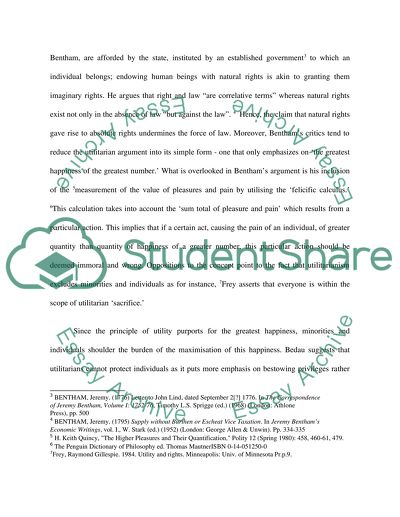Cite this document
(“Jeremy Bentham Concept of Utilitarianism Book Report/Review”, n.d.)
Jeremy Bentham Concept of Utilitarianism Book Report/Review. Retrieved from https://studentshare.org/philosophy/1525872-jeremy-bentham-concept-of-utilitarianism
Jeremy Bentham Concept of Utilitarianism Book Report/Review. Retrieved from https://studentshare.org/philosophy/1525872-jeremy-bentham-concept-of-utilitarianism
(Jeremy Bentham Concept of Utilitarianism Book Report/Review)
Jeremy Bentham Concept of Utilitarianism Book Report/Review. https://studentshare.org/philosophy/1525872-jeremy-bentham-concept-of-utilitarianism.
Jeremy Bentham Concept of Utilitarianism Book Report/Review. https://studentshare.org/philosophy/1525872-jeremy-bentham-concept-of-utilitarianism.
“Jeremy Bentham Concept of Utilitarianism Book Report/Review”, n.d. https://studentshare.org/philosophy/1525872-jeremy-bentham-concept-of-utilitarianism.


